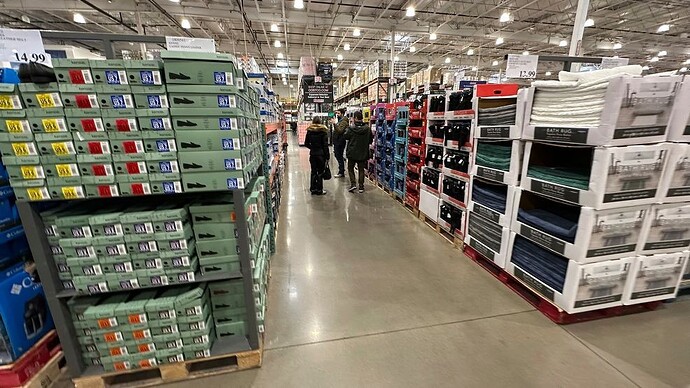WASHINGTON (TNND) – Consumer confidence fell to for the fourth consecutive month in March over continued fears of inflation spiking and uncertainties about the impact tariffs will have on the economy that sent expectations about the future to a 12-year low.
Attitudes toward the economy have deteriorated for the last several months in a shift primarily driven over fears about inflation and sweeping tariffs from the White House that have also jolted the stock market and helped drive concerns about slowing economic growth.
Results Conference Board’s monthly index fell by 7.2 point in March to 92.9, a sharp decline from 105.3 in January. Its Expectations Index, based on short-term outlooks for consumers’ personal financial situations, dropped to 65.2, the lowest figure in 12 years and well below the threshold of 80 that the group says signals a recession is ahead. The level of consumers anticipating a recession held steady but is still at a nine-month high.
“Consumers’ expectations were especially gloomy, with pessimism about future business conditions deepening and confidence about future employment prospects falling to a 12-year low,” said Stephanie Guichard, senior economist of global indicators at The Conference Board. “Meanwhile, consumers’ optimism about future income – which had held up quite strongly in the past few months – largely vanished, suggesting worries about the economy and labor market have started to spread into consumers’ assessments of their personal situations.”
The Conference Board said comments about the Trump administration and its policies dominated the responses of what is affecting consumers’ views of the economy and that there were more references than usual to economic and policy uncertainty.
Another closely watched gauge of consumer attitudes from the University of Michigan released last week fell to its lowest level since 2022. Inflation expectations for the upcoming year also jumped to the highest reading since 2022 at 4.9%.
Both measures have cited deep anxieties about uncertainty about economic policy that make it harder for consumers to plan for the future. The White House has frequently announced tariffs set to take effect only to delay them or roll them back near the deadline, creating whiplash for consumers and businesses trying to figure out how to navigate a shifting landscape.
The White House is planning to unveil its so-called “reciprocal tariffs” on April 2 that are expected to target some of the United States’ biggest trading partners that could have widespread impacts on prices. While the reciprocal tariffs will be more targeted than economists and businesses initially feared, the sprawling nature of them is still expected to increase prices on all sorts of goods.
This month’s consumer sentiment reports come after Wall Street hit a “correction,” where the market drops 10% from its recent high. Stocks have since rebounded some but are still down compared to when Trump took office in a visible sign of concern for already inflation-weary consumers.
The White House has downplayed the dips in the market as temporary issues that will be worth the result of its tariff plans that the president says will make the economy stronger and country wealthier.
Drops in consumer sentiment don’t always lead to drops in spending but can be forceful warning signs. Retail sales grew tepidly in February after a sharp fall in January but still missed expectations amid growing concerns about a broader pullback in consumer spending that accounts for two-thirds of U.S. economic activity.
Inflation expectations have also worsened in both surveys that could lead to a difficult dynamic to break. If consumers expect higher prices, they can demand higher pay to combat them which forces businesses to raise prices to afford it, creating a self-fulfilling spiral. Fed chair Jerome Powell said long-term expectations still appear to be well-anchored but that the central bank is still watching them closely.
“The relationship between survey data and actual economic activity hasn’t been very tight, there have been plenty of times where people are saying very downbeat things about the economy and then going out and buying a new car. But we don’t know that that will be the case here. We will be watching very carefully for signs of weakness in the real data,” Powell said last week.
Inflation has been stuck above the Fed’s 2% target since the post-pandemic spike but moved down to 2.8% in February for the first time in five months. Economists and the Fed are concerned the tariffs could continue to keep prices elevated and warned it will be difficult to discern what price increases are coming from tariffs and which are from other economic factors.
[Collection]bakersfieldnow.com
